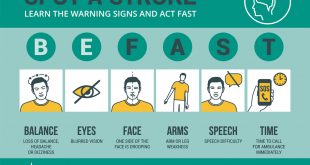

• One person dies every 34 seconds in the United States from cardiovascular disease.
• About 697,000 people in the United States died from heart disease in 2020 that’s 1 in every 5 deaths.
• Heart disease cost the United States about $229 billion (about $700 per person in the US) each year from 2017 to 2018. This includes the cost of health care services, medicines, and lost productivity due to death.
In regard to heart attacks,
• In the United States, someone has a heart attack every 40 seconds.
• Every year, about 805,000 people in the United States have a heart attack. Of these, 605,000 are the first heart attack.
• 200,000 happen to people who have already had a heart attack.
• About 1 in 5 heart attacks are silent—the damage is done, but the person is not aware of it.1
What is a heart attack?
A heart attack most commonly results from fatty buildups (atherosclerosis) in the arteries that carry blood to the heart muscle. Plaque buildup narrows the inside of the arteries, making it harder for blood to flow.
If plaque in a coronary artery ruptures, a blood clot can form and further block the blood flow. When it completely stops blood flow to part of the heart muscle, a heart attack occurs. Then the section of the heart muscle supplied by that artery begins to die. Damage increases the longer an artery stays blocked. In some cases, it may even die. Once muscle dies, the result is permanent heart damage.
The amount of damage to the heart muscle depends on the size of the area supplied by the blocked artery and the time between the injury and treatment. The blocked artery should be opened as soon as possible to reduce heart damage.
If you are eligible, your healthcare provider will recommend a cardiac rehabilitation program in your area. Cardiac rehab is a medically supervised program designed to improve your cardiovascular health. It has three equally important parts:
• Exercise counselling and training
• Education for heart-healthy living
• Counseling to reduce stress
Heart Attack Care
Manatee Memorial Hospital is proud to be an Accredited Chest Pain Center with PCI and Resuscitation by the American College of Cardiology. The hospital has also been awarded the Mission: Lifeline STEMI Receiving Center Gold Quality Achievement Award from the American Heart Association for the seventh year in a row.
The faster a heart attack patient receives artery-clearing intervention, the better their chance of survival and recovery. The ECC (Emergency Care Center) coordinates with EMS to speed assessment and intervention. The ECC staff is alerted by radio and ready to act quickly when the patient arrives.
Emergency intervention for heart attacks is coordinated with cardiologists, radiologists and cardiothoracic surgeons. Manatee Memorial has been reported to have one of the country’s lowest mortality rates for heart attacks, and the providers are known for their success in this area.2
Depending on the type and severity of the heart attack, the cardiac team takes patients from the ECC directly to a catheterization lab to administer treatments to clear blocked arteries and restore blood and oxygen flow to damaged heart tissue. A cardiac team and fully equipped cardiac catheterization suite is available 24 hours a day. Patients are rapidly evaluated, and a course of treatment is begun.
Manatee Memorial Hospital
5506 14th Street West,
Bradenton, Florida 34207
 Southwest Florida's Health and Wellness Magazine Health and Wellness Articles
Southwest Florida's Health and Wellness Magazine Health and Wellness Articles

